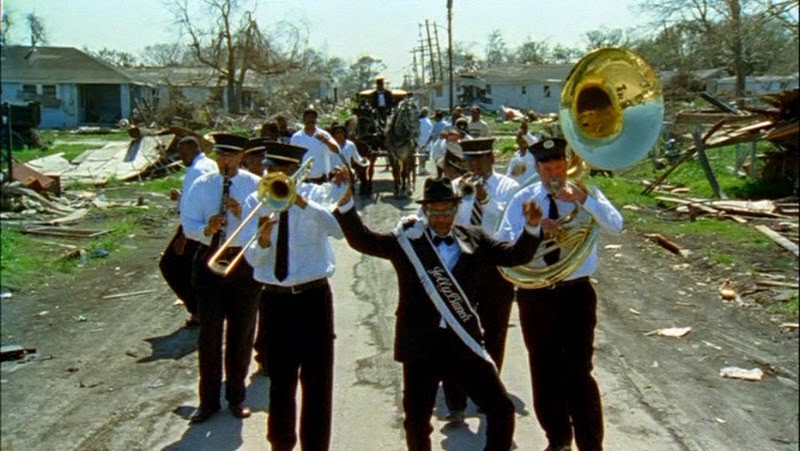Director: Spike Lee,
Watched on: HBO,
Rating: 5/5.
In his four-hour long post-Hurricane Katrina documentary, When the Levees Broke, Spike Lee and his team of filmmakers throw a wide net over all the neighborhoods of New Orleans, interviewing residents who fled Katrina, musicians who returned, politicians who passed the buck, journalists who wrote impassioned indictments of failed policy. At first, the movie feels overloaded with talking heads, too many faces, too many names, too many stories. But soon a pattern emerges. What Lee is doing with this film is telling the story of a diaspora, a great forced emigration of lost and wandering souls who left the only home they knew, and are now in danger of being forgotten. In story after story, anecdote after anecdote, with varying measures of rage, incomprehension, sorrow and survival, the people of New Orleans tell their story to the only audience that will listen: people just like them, homeowners with families, working men and women, children and grandmothers.
As Lee makes clear in this movie, it will certainly not be the politicians who pay them any mind. This film is at its best when it is angry, when it is searing and honest about the failures of the Bush Administration, FEMA, Mayor Ray Nagin, and when it points a finger at the racism allowed for too long to fester in the seams dividing the Crescent City. Lee has created a vast and damning chronicle of one of the worst natural disasters–and one of the most inept federal responses–to befall our 225 year old country. When the Levees Broke is courageous and beautifully modulated; it walks a line that runs between violence and resentment, and never does it drift into resignation. Hurricane Katrina ripped a deep and ugly gash into the soul of this country and nowhere in this film does Lee pretend that that wound is beginning to heal.
He makes good use of televised reports of Katrina, contrasting the reality of what we saw on TV screens with the profound indifference of Bush, Cheney, Rice, and Chertoff. And he uses audio from the BBC to illustrate how the world outside our borders saw the tragedy and its aftermath as a blatant example of federal incompetence. But this film is much, much more than a punishing criticism of Bush; it’s also a moving and incisive piece of social journalism. Lee weaves together all the threads of the Katrina disaster: the build-up to the storm, the evacuation, the brief quiet after New Orleans seemed to duck the brunt of the hurricane, and then the flood itself, followed by the inside stories of what was going on in the convention center, the superdome, and in the neighborhoods. Yes, there are dead bodies, lots of them, and there are sad visits by homeowners to their lost houses in the weeks after.
When The Levees Broke may be the film Spike Lee was born to make. He has always struggled in his fictional films to marry his caustic, sometimes flip social commentary with his desire to craft popular entertainment. The results are usually awkward, and his pictures end up being studded with startling but impotent arguments. But with this documentary, the truth needs no embellishment. When The Levees Broke is as important a film as you’re going to see this year.

